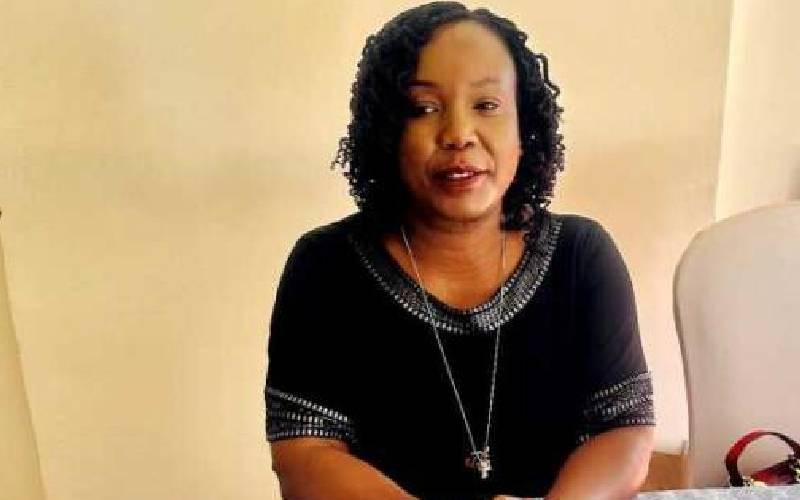By Morris Aron and Reuters
The global credit crunch may have been bad news for many developed economies both in the West and Asia, but for Africa, the phenomenon was a windfall of sorts.
As a result of the meltdown, investment funds escaping ravaged western economies found their way in Africa scouting for safer business opportunities.
Africa’s fortunes also gained from the high level of investments from resource-hungry Asian economies.
The continent that has been over the years struggling to fight widespread poverty is also starting to attract interest from Middle Eastern investors looking to dilute their exposure to the rich Western markets.
Last week GroFin—a multinational finance and development outfit—announced closing the largest ever growth finance fund worth Sh12 billion ($170 million) to be invested in 500 small and medium enterprises across Africa.
Kenyan entrepreneurs, strained for cash, are set to benefit from a Sh3 billion ($43 million) fund set up by GroFin Africa Fund.
"We will service Small and Medium Enterprises (SMEs), which have challenges with getting funding from formal and traditional sources such as banks due to lack of collateral or limited history," reckons Kenneth Onyando, the general manager of GroFin Kenya.
"SMEs constitute a powerful driving force of the African economy and it is essential to ensure that tailored funding is available to support their continued growth, particularly during the current financial crisis," says Plutarchos Sakellaris, the European Investment Bank (EIB) Vice President responsible for the Bank’s activities in sub-Saharan Africa,s which is one of the main funders of GroFin.
GroFin Africa Fund has to date committed $17 million to 50 companies. The funding agency is currently considering investing $8 million in 24 companies across the region.
"This is clearly demonstrates the high levels of interest that investors have for smaller investments in Africa that deliver both quantifiable investment and development returns," said Jurie Willemse managing director of GroFin.
The company will serve SMEs, which qualify for loans of between Sh3.6 million ($50,000) and Sh72 million ($1 million) at competitive interest terms.
SMEs that qualify for funding will also benefit from technical support on best business practices to help them grow their enterprises. "Apart from the funding, we will also engage the business owners on best practices to ensure their success," explained Onyando.
Details of the fund indicate that the special funding targets all sectors of the economy, with no preference for any particular field, with the exception of businesses that are engaged in primary agriculture activities. Those involved in agro-processing would however qualify for funding.
GroFin has already funded a bore hole drilling company which operates in Nairobi and its environs—a development which helped the company acquire more drilling machines and is now set to expand its services to the wider East African economies.
The fund has also financed an animal feeds manufacture plant with a processing plant on the outskirts of Nairobi that recently won a major tender with a leading milk processing.
Barely a week after GroFin’s announcement, Abu Dhabi-based Invest AD announced it had set aside Sh2.6 billion ($30 million) for the Africa frontier market to tap into the growth potential of a region it likened to southeast Asia before the 1980s and 1990s "tiger economy" years.
Investment management head of Invest AD, Mohammed Al Hashemi, says the fund, launched on April 15, was most heavily exposed to Egypt, Nigeria and Morocco, with smaller holdings in Kenya, Tunisia, Ghana, Mauritius and South Africa.
The Invest AD Emerging Africa Fund, has been mandated to invest only 20 per cent in South African stocks — the region's biggest economy.
"We will selectively invest in some South African stocks, but only where a significant portion of their business derives from sub-Saharan or North African economies," he said.
The fund draws from a belief that investments in infrastructure projects and steady improvements in corporate governance would drive growth for many of the emerging Africa economies.
"We strongly believe that North Africa and sub-Saharan Africa are where the bulk of growth opportunities lie," Hashemi said in an interview.
"It's pretty much what we saw back in '1980s prior to Southeast Asia's take-off."
There are around 15 'Africa frontier' funds, managed mainly out of London or South Africa, offering exposure to a continent that is home to nearly a billion people and as much as a third of the world's natural resources.
A mixture of debt forgiveness, booming commodity prices, strong Foreign Direct Investment and improving governance spurred average African annual growth of five per cent from 2003.
But African equities were hit hard in the global flight from emerging markets at the end of last year, and growth on the continent is expected to slow to two per cent this year.
Invest AD’s fund had grown just over five per cent in value since its launch, Hashemi said, compared to a 20 per cent rise in its benchmark.
He reckons that the fund had around 40 stocks, with some of its biggest stakes in Egyptian telecoms operator Orascom, Morocco's Maroc Telecom and First Bank and United Bank for Africa in Nigeria.
GroFin sources its capital from leading foundations, banks and investment companies across the globe including European Investment Bank, CDC, The Shell Foundation and African Development Bank among others.
Locally, GroFin gets support from Commercial Bank of Africa, Bank of African in Tanzania and Central Bank of Rwanda.
Invest AD seeded the Caymans-domiciled fund with $30 million of its own money and was about to start marketing it to third party investors.
The fund, which is open-ended and with weekly liquidity, is aimed at institutional and wealthy private investors, with a minimum investment of $100,000.
Experts say that the emerging trend comes from a belief among investors that Africa is the next business growth opportunity frontier due to its huge largely untapped resource reserves.
 The Standard Group Plc is a multi-media organization with investments in media
platforms spanning newspaper print operations, television, radio broadcasting,
digital and online services. The Standard Group is recognized as a leading
multi-media house in Kenya with a key influence in matters of national and
international interest.
The Standard Group Plc is a multi-media organization with investments in media
platforms spanning newspaper print operations, television, radio broadcasting,
digital and online services. The Standard Group is recognized as a leading
multi-media house in Kenya with a key influence in matters of national and
international interest.
 The Standard Group Plc is a multi-media organization with investments in media
platforms spanning newspaper print operations, television, radio broadcasting,
digital and online services. The Standard Group is recognized as a leading
multi-media house in Kenya with a key influence in matters of national and
international interest.
The Standard Group Plc is a multi-media organization with investments in media
platforms spanning newspaper print operations, television, radio broadcasting,
digital and online services. The Standard Group is recognized as a leading
multi-media house in Kenya with a key influence in matters of national and
international interest.









